[ad_1]
The Russian Olympic Committee (ROC) female trio will start their quest for gold in Beijing on Tuesday
The Russian Olympic Committee (ROC) is expected to add more medals to its Beijing tally when its trio of female figure skating stars line up for the singles event in the Chinese capital.
Success is predicted for the traditional figure skating powerhouse, but this time round the backdrop has been marred by the doping row surrounding gold medal favorite Kamila Valieva.
But with the 15-year-old cleared to compete thanks to a ruling by the Court of Arbitration for Sport (CAS) on Monday, this is what you need to know about the short skate routines on Tuesday.
The women’s short program
All competitors in the event are required to execute three jumping elements in their short programs.
The technical content of each skater should include a double or triple axel, one triple jump and a jump combination consisting of either a double jump or a triple jump.
Importantly, quads are not allowed in women’s short routines under current ISU rules.
Along with jumps, athletes will earn precious points for spins and step sequences during a program which lasts 2 minutes 40 seconds.
Kamila Valieva (ROC)
What was widely tipped to be a coronation for the Russian prodigy has turned into an Olympic nightmare marred by a doping case which has unfolded during the Games.
Valieva – who some argue is the most gifted female skater ever seen with her artistry and grace – has become embroiled in controversy after being notified of a positive test taken in December when she was on her way to winning the Russian national championships.
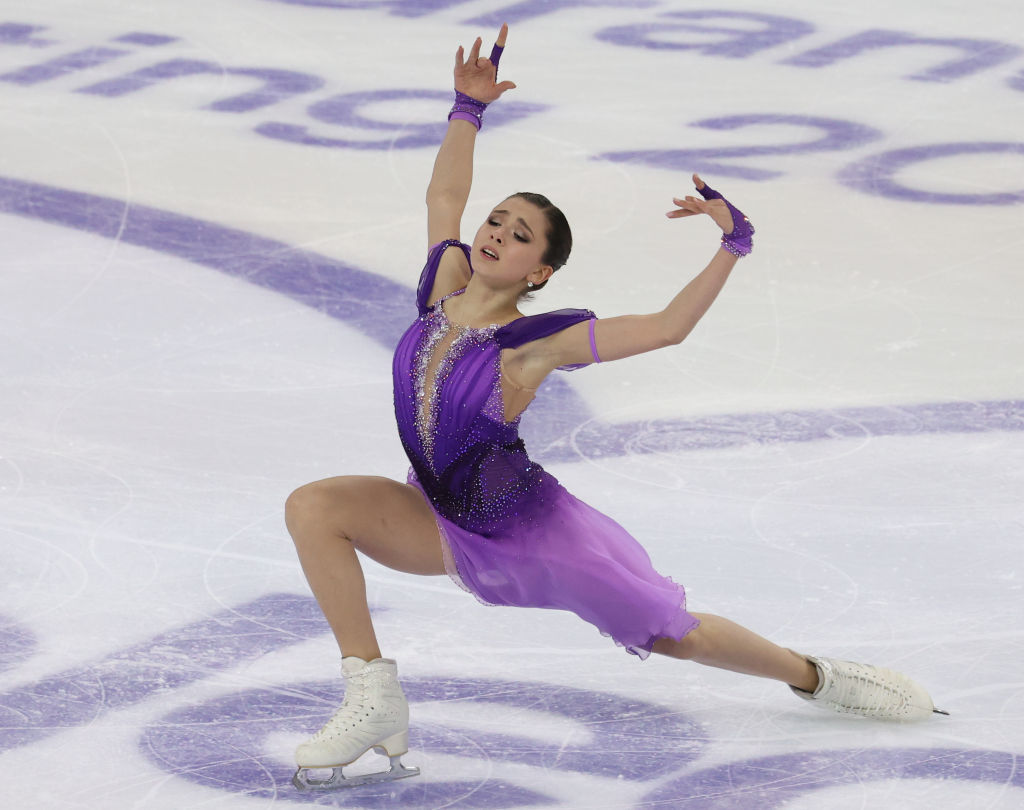
Kamila Valieva Getty Images / Oleg Nikishin
Despite initially being provisionally suspended, Valieva will appear on the ice after appealing the ban – a decision which was backed by CAS despite opposition from the International Skating Union (ISU), International Olympic Committee (IOC) and the World Anti-Doping Agency (WADA).
The 15-year-old holds the world record score in the short program, where Valieva’s immaculately landed triple axel gives her a huge advantage over the competition, with few rivals attempting to hit the risky jump.
Her standard technical content also includes a triple flip and a triple lutz-triple toe loop combo thrown in the second part of a program.
She is the only skater in the world to break the 90-point barrier in the short program, with her world record amounting to 90.45 points.
Her tender short skate routine ‘In Memoriam’ has a hidden message as it is dedicated to Valieva’s late grandmother.
Alexandra Trusova (ROC)
The ‘Russian rocket’ – as Alexandra Trusova is dubbed – is also considered a top gold medal contender in Beijing.
However, the the first female skater ever to land a quad seems likely to suffer from the ISU restriction which prohibits quads in women’s short programs.
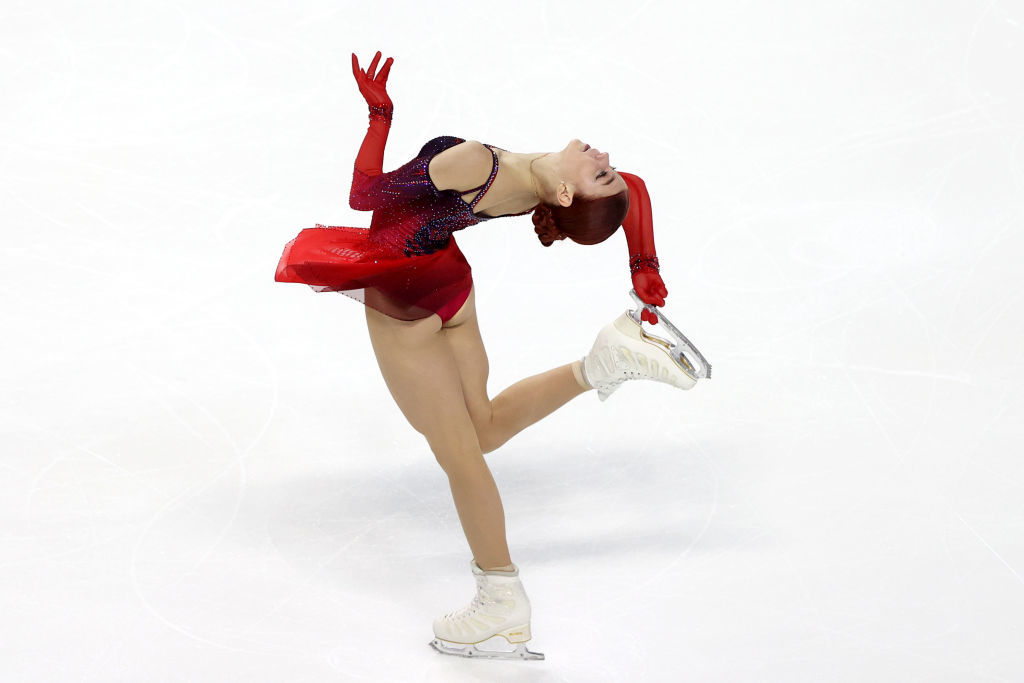
Alexandra Trusova Getty Images / Matthew Stockman
To remain competitive, Trusova has tried to complete a triple axel on numerous occasions, but has failed to master this element so far.
All her previous attempts to land the ultra-C jump, including at the Russian and European championships, were unsuccessful.
Whether she will include the element or prefer to do a more stable double axel instead remains unknown until we see her in action on Tuesday.
Previously criticized for a supposedly lack of artistry and choreography, Trusova has silenced some critics this season with her ‘Frida’ routine full of passion and drama.
Anna Shcherbakova (ROC)
Reigning world champion and European silver medalist Anna Shcherbakova doesn’t have a triple axel under her belt, a sore spot which puts her behind skaters with trixels.
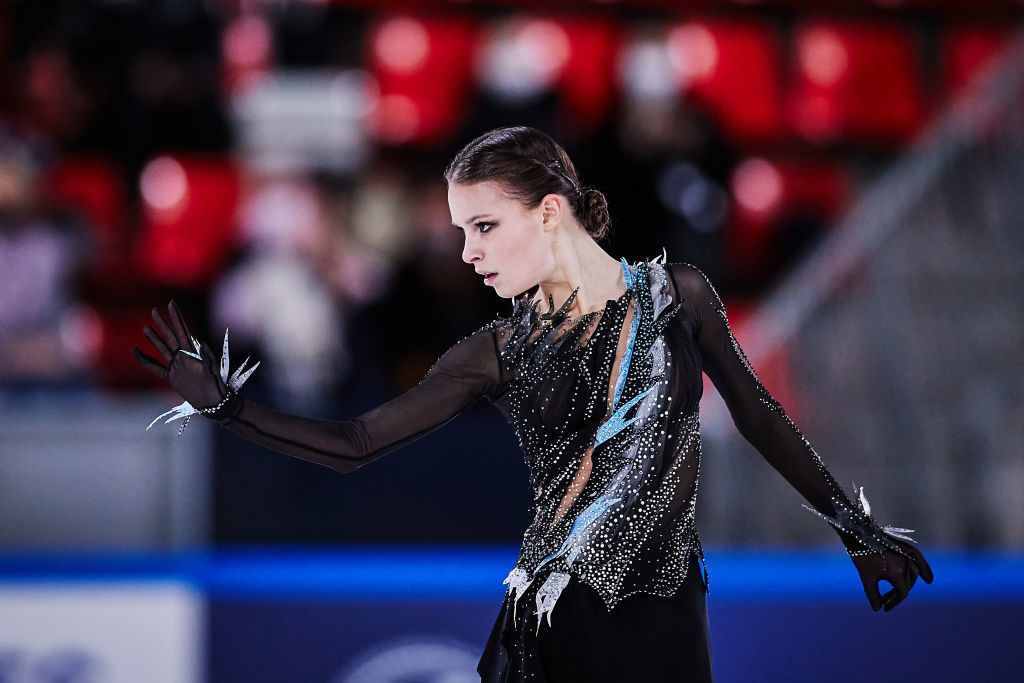
Anna Shcherbakova: Getty Images / Joosep Martinson
But along with stability, the skater’s forte could be consider to be a signature triple lutz-triple loop combo which she strategically places in the second part of the program, a step which brings her extra points.
Skating to ‘Dangerous Affairs’ by composer Inon Zur, Shcherbakova will undoubtedly be a potential force to finish in the top three in the women’s short program.
Alysa Liu (USA)
US women’s figure skating hopes in the singles event in Beijing seem to be bound up with Alysa Liu, a talented skater who threatens to interrupt Russia’s long-standing dominance in this event.
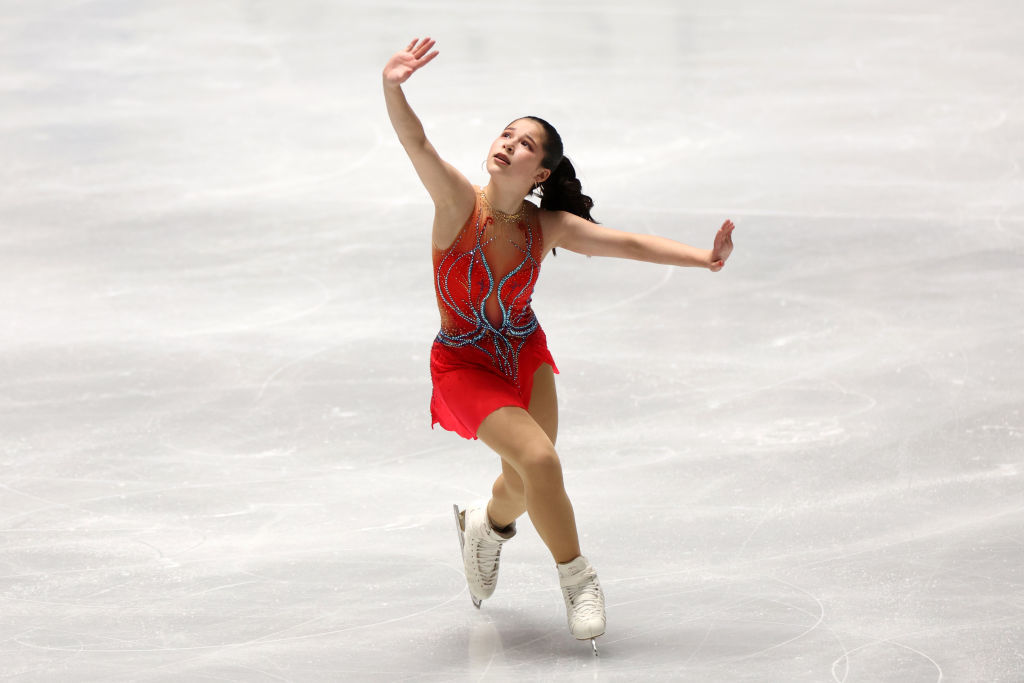
Alysa Liu Getty Images / Atsushi Tomura
Having a triple axel and a quad lutz to her name, Liu successfully performed at junior level where she fought for the world title together with Valieva.
Unfortunately, her preparation for the Olympics was disrupted by Covid-19, but the skater is hoping to enter the Olympic tournament at full strength.
Japanese trio
Japan, which has storied winning traditions in singles skating, has a powerful line-up in the women’s event with ambitions to disrupt the hopes for an all-Russian podium.
Wakaba Higuchi and Mana Kawabe are both capable of doing a triple axel – an element which puts them on a par to some extent with the Russian trio who will battle for the Olympic throne in Beijing.
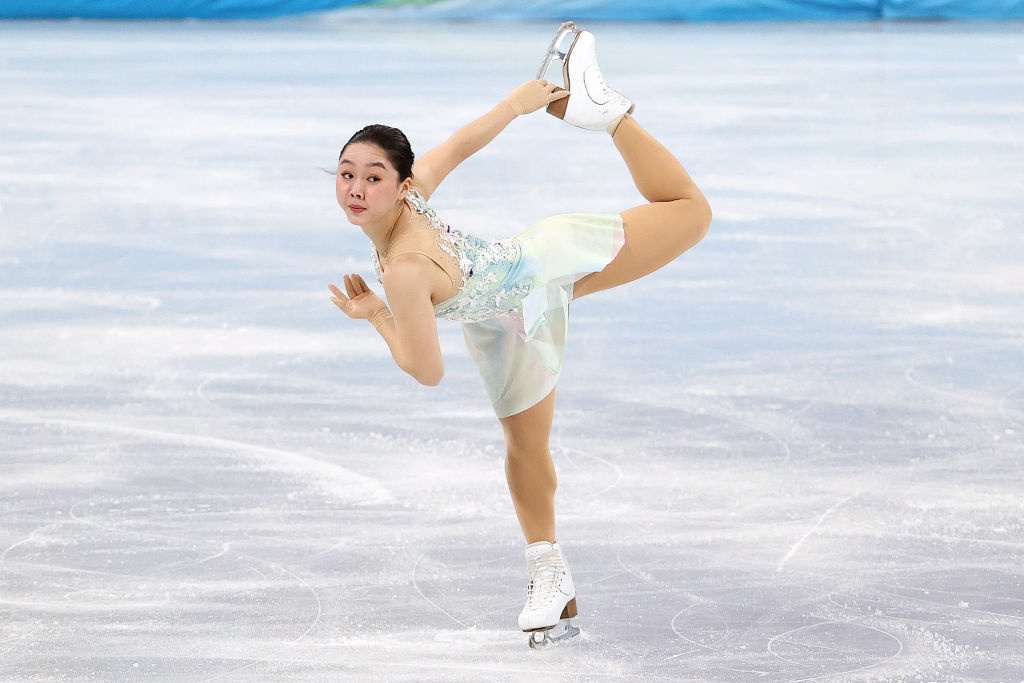
Wakaba Higuchi Getty Images / Jean Catuffe
Fellow Japanese team member Kaori Sakamoto has already impressed with her powerful and stable skating in China, as she helped her country to clinch a historic bronze in the team event last week.
Loena Hendrickx (Belgium)
Belgian skater Loena Hendrickx surprised many at the pre-Olympic European Championships in Tallinn, finishing second in the short program.
The 22-year-old delivered a near flawless skate, leaving behind favorites Shcherbakova and Trusova, who committed errors in their routines.
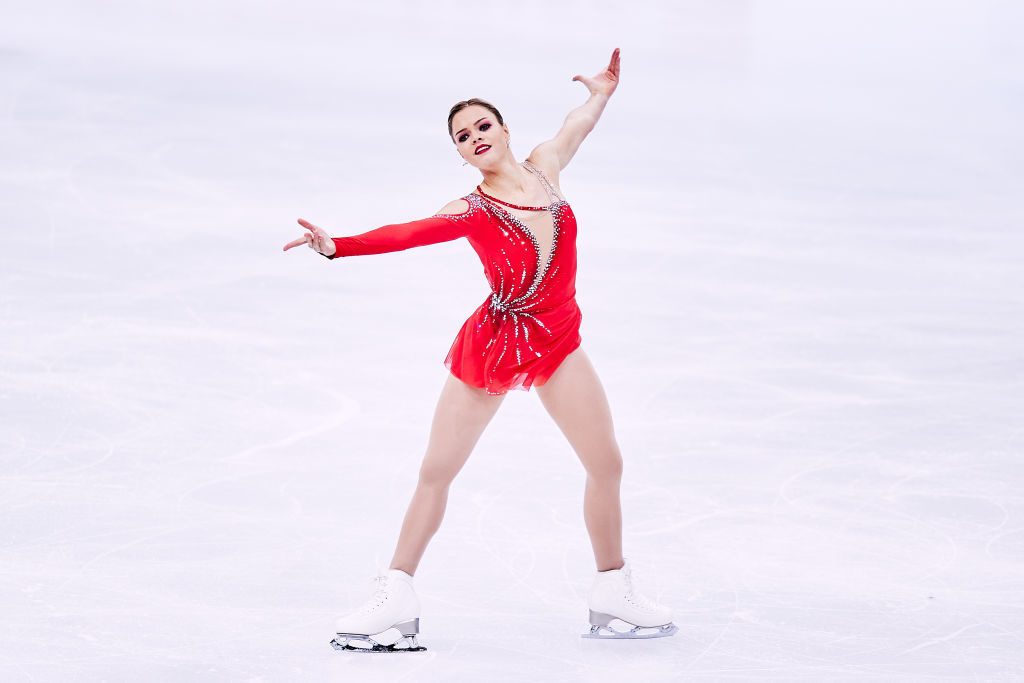
Loena Hendrickx Getty Images / Joosep Martinson
She failed to secure her second place in the free skate at the continental tournament, but can definitely battle for a high finish at the Olympics if she is consistent in both programs.
Young You (South Korea)
Korean skater Young You is another dangerous opponent who could threaten the Russian trio’s dominance in women’s skating, although her inconsistent triple axel and a quad could be a hindrance.
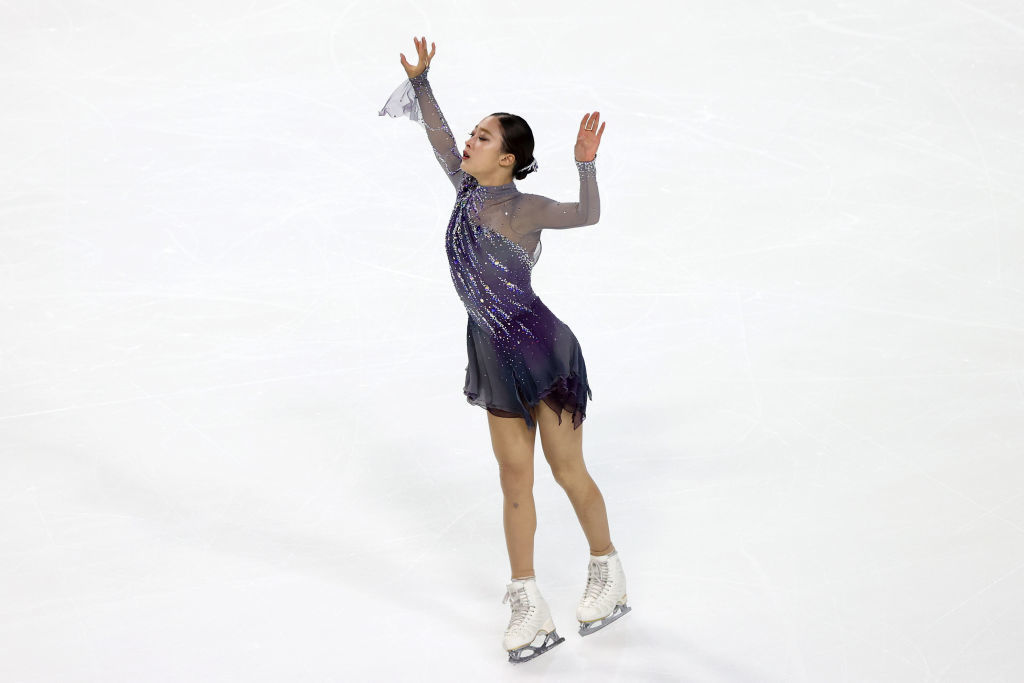
Young You Getty Images / Matthew Stockman
Last year, You even failed to make it to the national team, missing the world tournament in Sweden.
But back then she failed to show her best while recovering from Covid-19 complications. She will be hoping things are different in Beijing.
The women’s short program will kick off on Tuesday before the event concludes with the free skate on Thursday.
By Elena Dilber
(RT.com)
[ad_2]
Source link
















